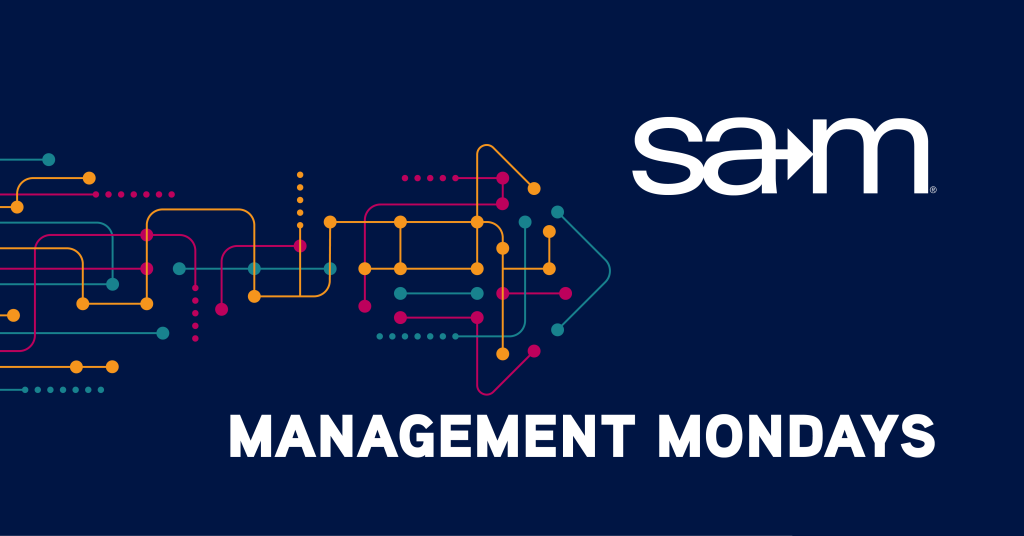
In the world of startups, there’s a key stage where you shift from being someone with a great idea to someone who leads a growing business. At first, entrepreneurs rely a lot on their fresh ideas and analytical skills to boost their companies. But as the business grows, their role changes, and they need to be good at leading and managing people.
It doesn’t matter if you’re a natural-born leader or still learning the ropes; it’s essential to keep improving your leadership skills. Here’s a detailed guide on areas where entrepreneurs can get better at leading, based on expert advice.
Advanced Communication Skills

Building Relationships. Cultivating meaningful, mutually beneficial relationships is foundational for any leader aiming to create an environment of collaboration and respect. Internal and external connections serve as a reservoir of diverse perspectives, advice, and ideas, allowing leaders to make well-rounded decisions. Building a resilient support network provides a platform for intellectual exchange, critical discussion, and innovative brainstorming, which leads to success.
In addition to fostering innovation and collaborative problem-solving, such relationships also enhance organizational cohesion. Engagement with employees and external partners strengthens the organization and encourages a respectful culture and shared goals. These connections serve as a conduit for learning, growth, and strategic alignment, paving the way for a harmonious organizational climate.
Proactive Inquiry. Taking a genuine interest in the aspirations, motivations, and concerns of the team members not only strengthens the interpersonal relationships within the organization but also enriches the leader’s understanding of individual needs and preferences. By understanding what drives the members of the team, leaders can tailor their approach to resonate better with the employees, creating a work environment that is both supportive and motivating.
Moreover, seeking advice and insights from others is not a sign of weakness but of wisdom and strength. Leaders who embrace a culture of asking and learning are more likely to make sound, informed decisions, benefiting from the collective experience and knowledge within and outside the organization. This proactive inquiry can help in building an organizational culture marked by openness and trust.
Mutually Beneficial Feedback. Promoting a culture of open, constructive feedback is critical for organizational growth. When leaders show receptiveness to others’ opinions and encourage honest conversations, it not only fosters mutual respect but also opens up avenues for learning and development. Such an approach nurtures an environment where everyone feels valued, and their opinions are heard.
Furthermore, feedback is a two-way street. Leaders, by seeking feedback about their leadership style and decisions, display humility and a willingness to adapt and grow. This exchange of insights encourages continuous learning and improvement, benefiting both organizational and personal growth.
Inspirational Leadership. Inspiration is an inherent part of effective leadership. Leaders who articulate their passion and vision clearly create a sense of purpose and direction for their team. By aligning the organizational mission with daily actions and decisions, leaders can instill a sense of coherence and unity within the team, and this keeps the organization moving forward with a shared sense of purpose.
Moreover, when leaders exemplify the values and principles they preach, it motivates the team to emulate these ideals. Inspirational leadership goes beyond mere words; it is about embodying the vision and leading by example. When employees witness their leaders aligning their actions with the organizational mission, it enhances trust and motivates them to integrate personal goals with organizational objectives, driving cohesive, purposeful action.
Robust Recruitment Strategies

Strategic Talent Acquisition. Traditional recruitment methods are often insufficient in the today’s competitive marketplace. Establishing a well-defined employer brand and maintaining continuous engagement with potential candidates is crucial for building a pool of qualified talent. Developing a strategic, multifaceted approach to talent acquisition ensures that organizations can attract individuals who are not only skilled but are also aligned with the company’s values and vision.
Moreover, the focus should not be solely on active candidates. Maintaining relationships with passive candidates and internal employees displaying potential can help in creating a reservoir of talent. This proactive approach to talent acquisition allows organizations to fill positions swiftly with candidates who are more likely to fit seamlessly into the company culture and contribute meaningfully to its success.
Streamlined Hiring Processes. The multifarious nature of recruitment often demands a prioritized, systematic approach. By identifying roles that are more critical and time-sensitive, organizations can allocate their resources more effectively, ensuring that the recruitment process is both efficient and impactful. Streamlining the hiring process by focusing on more critical positions first can significantly reduce the time and effort involved in talent acquisition.
Additionally, addressing the easily fillable positions quickly allows organizations to allocate more time and resources to roles requiring specialized skills and backgrounds. This prioritized approach ensures that the recruitment process is efficient, and the organization can attract the right talent for the right roles at the right time, enhancing overall organizational productivity and growth.
Embrace Diversity. In today’s globalized world, valuing diversity is a business imperative. An organization that is intentionally inclusive in its hiring practices benefits from a plethora of perspectives, ideas, and approaches. Ensuring that the job descriptions and hiring teams are inclusive and that the recruitment process is free from biases is crucial for building a diverse, dynamic workforce.
In addition to fostering an inclusive environment, leaders should also focus on sourcing candidates from diverse talent pools. Encouraging referrals and targeting diverse sourcing channels can help organizations reach a wider audience, thereby enhancing the diversity within the organization. A diverse workforce not only enriches the organizational culture but also enhances creativity, innovation, and problem-solving capabilities.
Effective Delegation

Empowering Team Members. Effective delegation is about more than just redistributing tasks; it is about empowering team members with opportunities to learn, grow, and advance in their careers. Assigning challenging, meaningful tasks to employees can contribute to their professional development and job satisfaction, resulting in a culture of continuous learning and growth within the organization.
Furthermore, empowering employees through effective delegation builds a sense of trust and mutual respect between leaders and team members. When employees feel valued and trusted with significant responsibilities, it enhances their motivation, commitment, and overall job satisfaction, leading to increased productivity and organizational success.
Continuous Learning Opportunities. Encouraging and providing opportunities for continuous learning is essential for developing a competent, adaptable workforce. By investing in the training and development of employees, leaders can ensure that the team members are well-equipped to take on more responsibilities and navigate the challenges of their roles effectively.
Moreover, enabling employees to acquire new skills and knowledge contributes to the overall resilience and adaptability of the organization. A well-trained, knowledgeable team is more likely to innovate, solve problems efficiently, and adapt to the changing business landscape, ensuring the long-term success and competitiveness of the organization.
Flexible Mindset. Adapting a flexible approach to task completion is a hallmark of progressive leadership. Recognizing that individuals may have varied methods and strategies to accomplish the same goal is crucial. By allowing room for innovation and creativity, leaders can leverage the diverse strengths of their team members, contributing to enhanced organizational performance.
Besides embracing varied approaches to task completion, flexible leadership also involves acknowledging and appreciating the unique strengths and capabilities of each team member. This adaptability builds a culture of innovation and respect that can in turn enhance overall job satisfaction, productivity, and organizational success.
Holistic Leadership Skills

Professional Persona. The projection of a professional image is indispensable, as it is often the first impression one makes. Depending on the industry, this may involve adopting a formal appearance and employing sophisticated public relations strategies. Cultivating a professional persona enhances credibility and reinforces the legitimacy of both the leader and the organization in the eyes of stakeholders.
Moreover, curating a professional image is not just about external appearances; it is also about embodying the values, principles, and ethics that the organization stands for. A well-crafted professional persona reflects the ethos of the organization and serves as a representation of its mission, vision, and values, strengthening stakeholder confidence and organizational repute.
Financial Acumen. For entrepreneurs, possessing a comprehensive understanding of financial documents, such as balance sheets and income statements, is paramount. This financial acumen is indispensable for interpreting the fiscal health and operational viability of the business. Proficiency in financial analysis enables leaders to make informed, strategic decisions that align with the organization’s goals and objectives.
Additionally, financial literacy empowers leaders to identify opportunities for growth and investment, manage risks effectively, and allocate resources judiciously. A deep understanding of the financial aspects of business management is crucial for ensuring the sustainability and profitability of the organization, allowing leaders to steer the venture towards long-term success.
Technological Mastery. With technology being an integral part of modern business operations, leaders must stay abreast of the latest technological trends and innovations. A strong grasp of relevant technologies can provide a competitive edge, enabling organizations to optimize their operations, enhance efficiency, and deliver superior value to their clients.
In addition to leveraging technology for operational excellence, leaders should also encourage technological adaptability within the organization. Embracing technological advancements ensures that the organization remains innovative, resilient, and prepared to meet challenges internally as well as in the marketplace.
Social Responsibility. Prioritizing social responsibility is integral for enhancing the brand image and fulfilling the ethical obligations of an organization. By contributing to social causes and prioritizing environmental and societal well-being, leaders can build goodwill and strengthen relationships with stakeholders. Engaging in ethical business practices and community outreach activities can significantly bolster organizational reputation and stakeholder trust.
Moreover, integrating social responsibility into the organization’s core values fosters a sense of purpose and fulfillment among employees. When team members perceive their work as contributing to the greater good, it enhances their motivation and job satisfaction, leading to a more engaged, committed workforce and a stronger, more respected organization. In conclusion, transitioning from a solo entrepreneur to a proficient leader requires tenacity, commitment, and a deep understanding of one’s strengths and weaknesses. The amalgamation of enhanced leadership skills, effective communication, strategic recruitment, and a balanced approach to delegation and technology mastery can significantly propel the organization forward, leading to sustained growth and success. By implementing these elements, entrepreneurs can navigate the challenges of leadership and guide their ventures forward effectively.
Are you looking to add tools to your management toolkit in managing difficult conversations like Terminations. Get a solid foundation on the basics by completing a SAM Course in Small Business Management from our Certifications and Training programs. Click here to connect with your Communication training course. If you are a SAM Member, take advantage of our 20% off discount by getting your discount code in the Member Portal.

Written By,
Patrick Endicott
Patrick is the Executive Director of the Society for Advancement of Management, is driven by a deep commitment to innovation and sustainable business practices. With a rich background spanning over a decade in management, publications, and association leadership, Patrick has achieved notable success in launching and overseeing multiple organizations, earning acclaim for his forward-thinking guidance. Beyond his role in shaping the future of management, Patrick indulges his passion for theme parks and all things Star Wars in his downtime.
